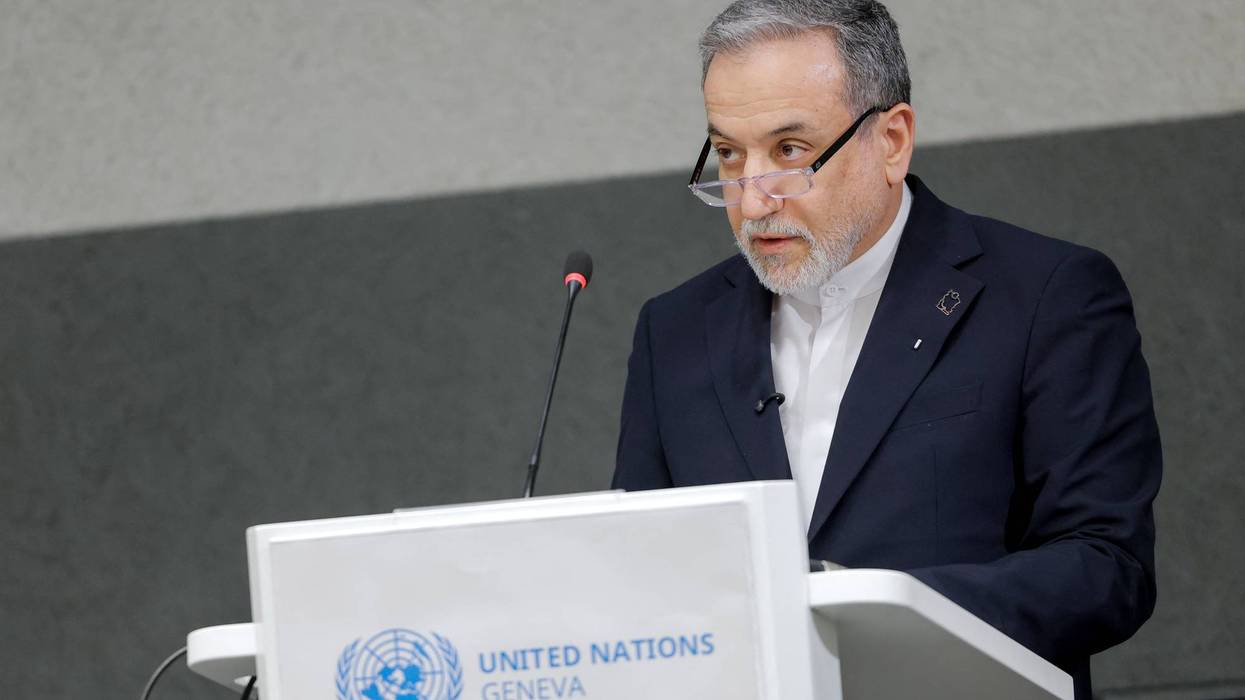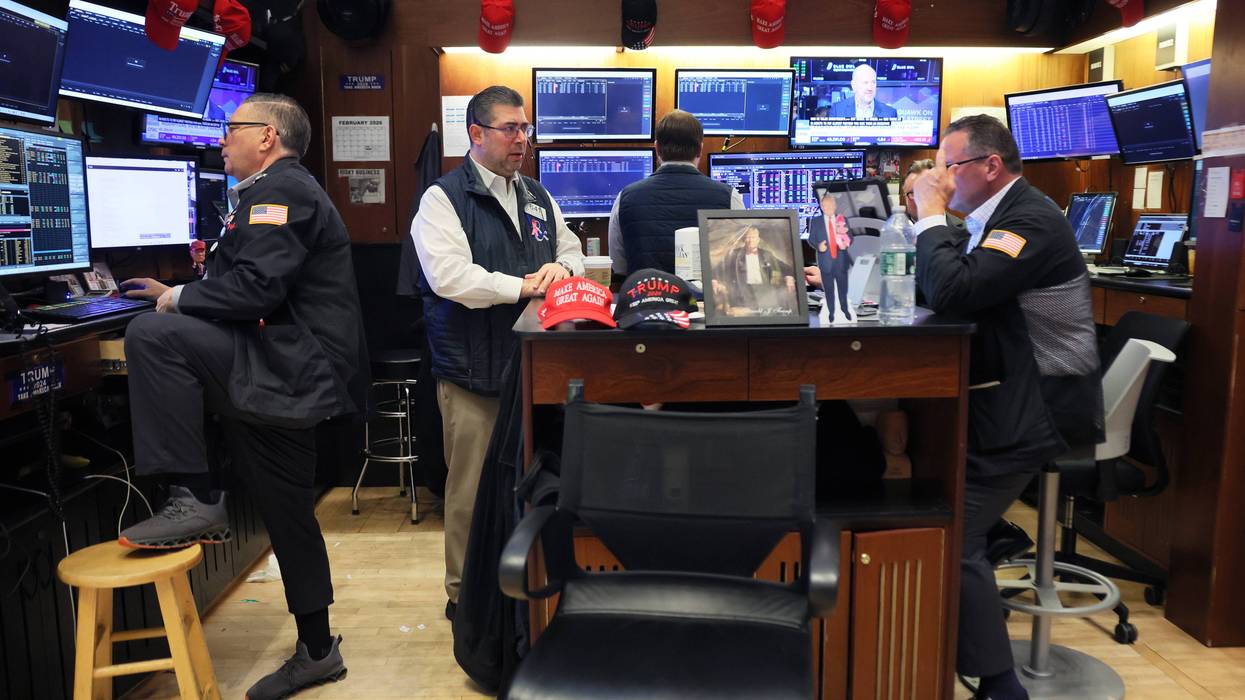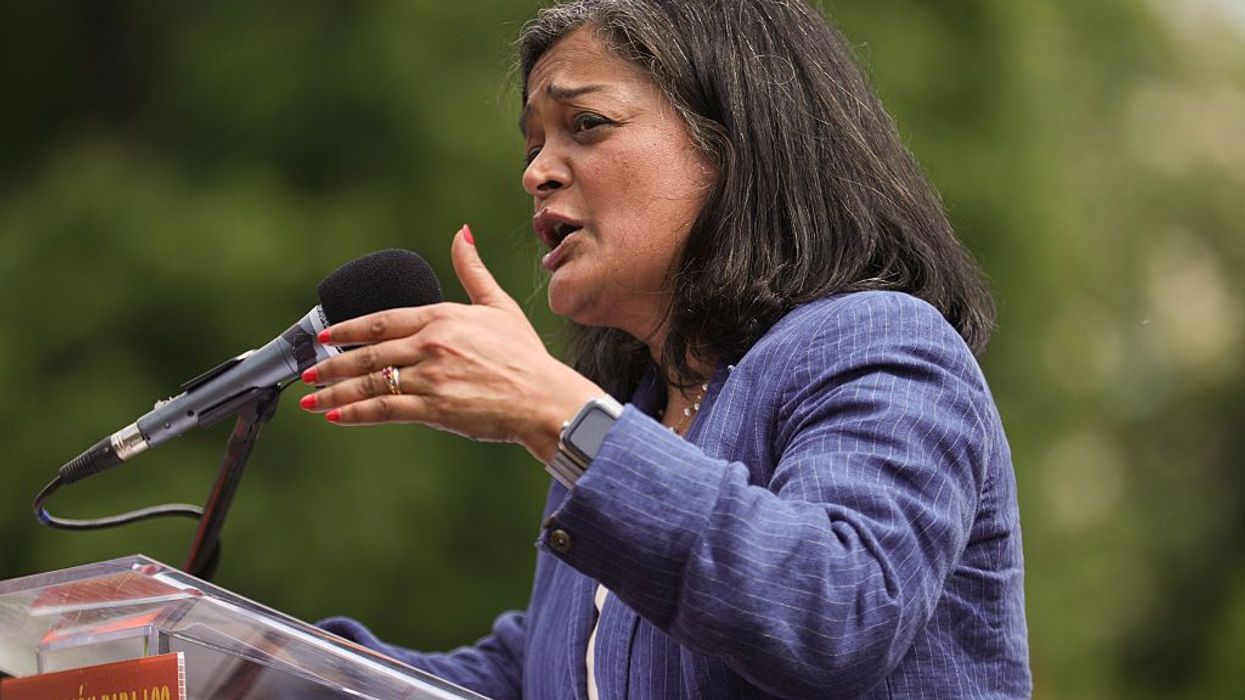Today, BlackRock CEO Larry Fink faced criticism from community leaders, researchers, and legal experts at the company's annual general meeting (AGM). During the meeting speakers from the Amazon and the U.S. called out Fink for the fact that his rhetoric on climate change does not match BlackRock's actions, while others from India, the Philippines, and the U.S. were denied entry into the meeting. BlackRock continues to be the largest global investor in coal, oil, and gas extraction, as well as companies building new coal plants, and is one of the largest investors in rainforest destruction. BlackRock has also failed to use its influence as a shareholder to push polluters to do better.
"Brazilian indigenous peoples and lands are under immense threat from the beef and soy industries working hand in glove with the Bolsonaro regime to undermine protections that keep our forests standing and our climate stable," said Luiz Eloy Terena, legal counsel for the National Indigenous Organization of Brazil (APIB for its Portuguese acronym) and member of the Terena People, who was able to speak directly to Fink inside the AGM. "When BlackRock funnels investments to these bad actors in Brazil, it is complicit in the destruction of tropical forests and violation of human rights. BlackRock must use its significant influence over these companies to signal that it will not tolerate policies that violate indigenous rights and damage the climate.
During the AGM Terena asked Fink for an audit of the activities of agribusiness companies operating in indigenous territories in Brazil that BlackRock invests in, but Fink refused to respond. Those denied entry to the AGM joined 45 people with New York Communities for Change, Friends of the Earth, Sierra Club, 350, Mothers out Front, and Extinction Rebellion who were gathered outside the meeting to protest. BlackRock has recently been facing increasing criticism for its insufficient actions to address the company's role in the climate crisis, despite Fink's claims about the importance of sustainability and social responsibility. Groups have called on the company to take three main courses of action:
- Begin to shift client investments away from fossil fuels and companies driving deforestation, starting with divesting from coal in actively managed funds
- Rigorously push the companies it owns to align emissions with a 1.5 C world
- Escalate accountability on industry laggards through transparent shareholder engagement, and support key climate shareholder resolutions and board of directors votes
"This is Fink's way of dealing with the climate crisis, block and ignore the stories of those impacted by BlackRock's investments," said Aaron Pedrosa, lawyer and Secretary-General for Sanlakas, who was denied entry to the AGM. "The Philippines is a climate change hotspot consistently figuring in Top 10 of the world's most vulnerable to climate impacts. The influx of more coal investments, with BlackRock as the leading coal investor, glosses over this life-and-death reality. With billions worth of coal investments in the Philippines, Black Rock has the choice to either stop killing our communities or keep funding destruction, death and violence. The decision to fund coal is blood on Black Rock's hands."
Pedrosa noted that the aggressive push of more coal projects by the Duterte Government is aggravating the situation on the ground. In July 2016, Gloria Capitan, an anti-coal advocate in Bataan was shot dead by still unidentified gunman. In December of 2017, Datu Victor Danyan and 7 other indigenous people in Lake Sebu, South Cotabato were killed in what the military claims to be an encounter. Datu Victor and his T'boli-Manobo tribe have been opposing the operation of a coal mine and coffee plantation in their ancestral domain. In 2018, the Philippines has been named by Global Witness as the deadliest place for land and environmental defenders in Asia and second in the world.
Also in at the AGM were former New York State Comptroller Tom Sanzillo, Mary Cerulli from Mothers Out Front, Rachel Rivera from New York Communities for Change, Greenpeace Senior Finance Campaigner focussing on the Indian coal sector Ashish Fernandes, and Amazon Watch's Finance Campaign Director Moira Birss.
"BlackRock is one of the largest global investors in fossil fuels and the dirtiest utilities in the United States. Counter to its talk, BlackRock's actions stand in the way of an equitable transition to clean energy and a livable climate for all children," said Mary Cerulli of Mothers Out Front. "Climate change represents a systemic risk to the economy, and it's long past time for asset managers like BlackRock to take action to address that risk."
New analysis from the BlackRock's Big Problem campaign highlight one aspect of the troubling investment practices spoken about during the meeting by revealing that BlackRock's suite of "sustainable" funds are more greenwash than climate friendly. The research, released this week, examined the equity Environment Social and Governance ("ESG") exchange traded funds marketed by BlackRock in the US and found over $423 million is invested in fossil fuel companies and over $29 million invested in agribusinesses driving deforestation around the world.





